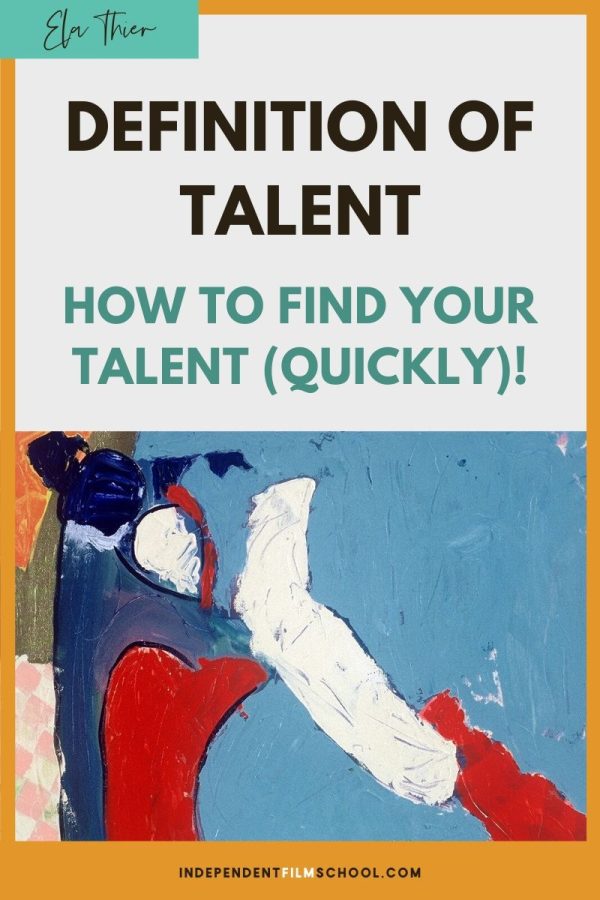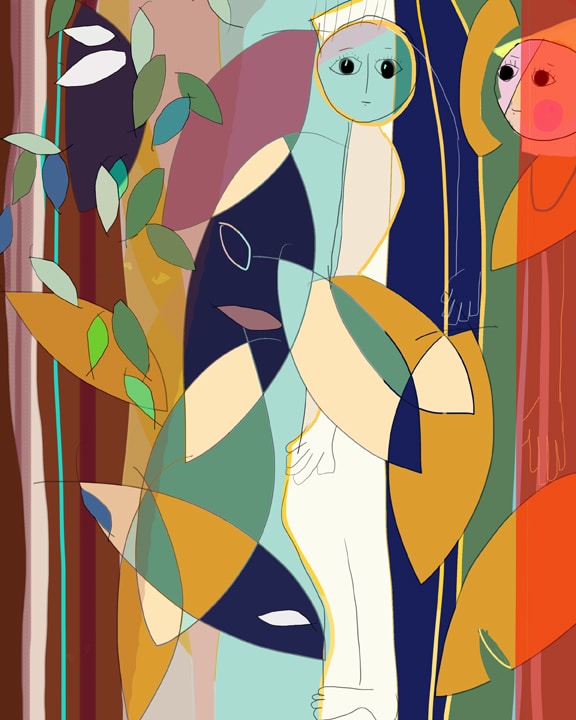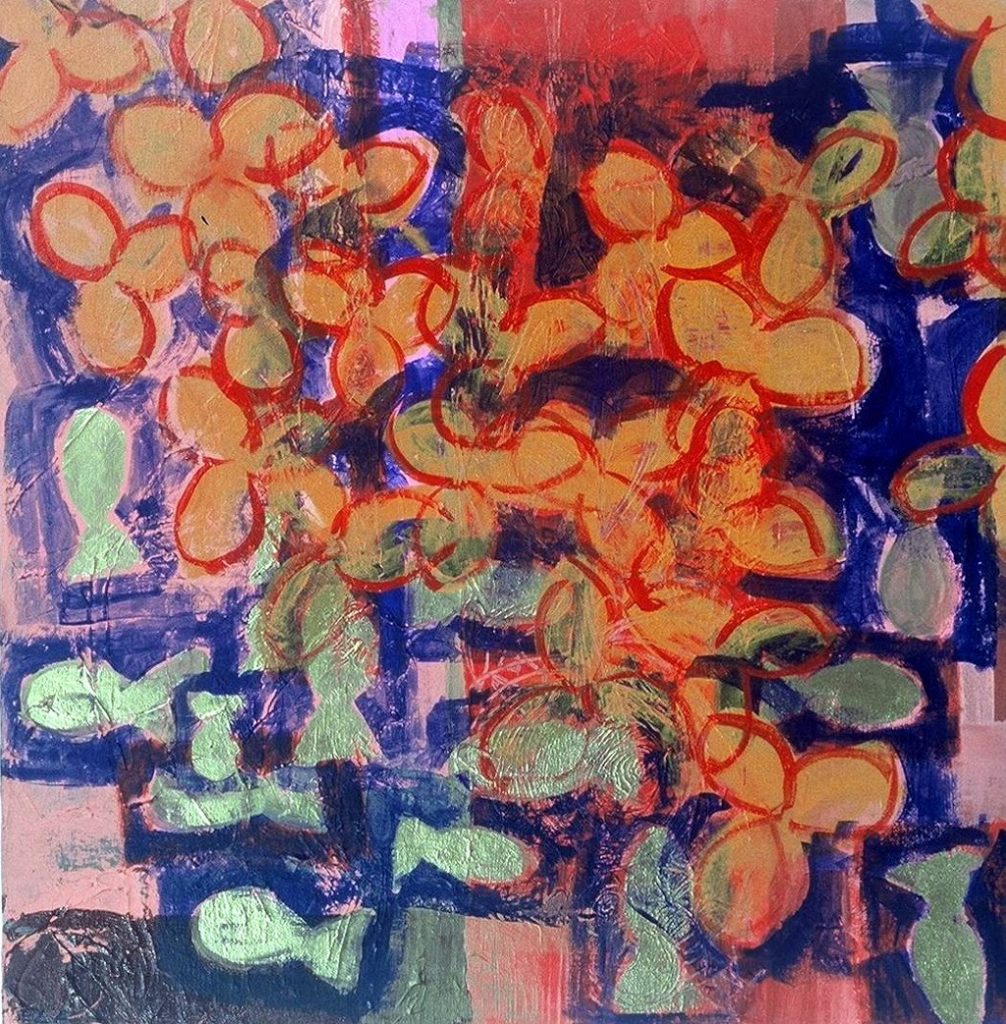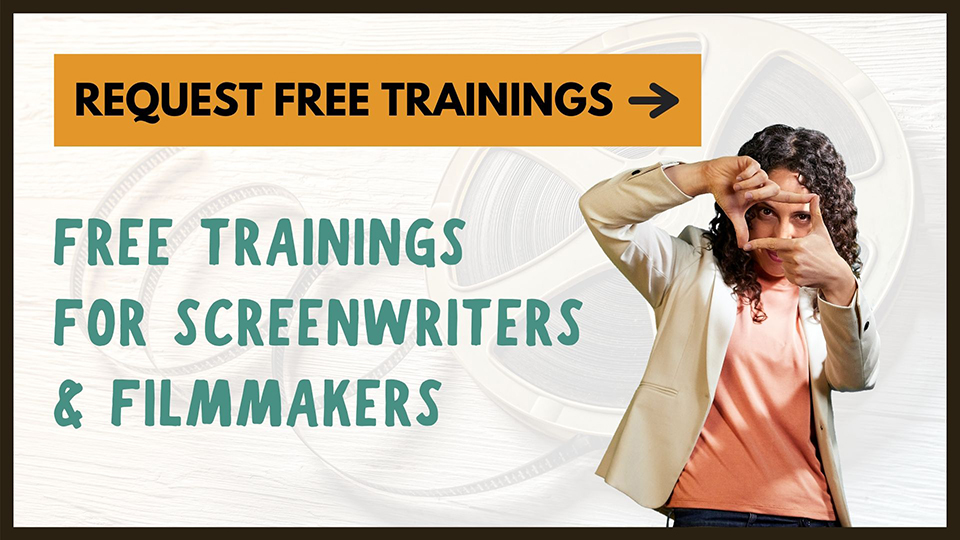
Don’t ask if you’re talented; ask how to find your talent.
What’s the definition of talent? let’s dig in, but first a disclaimer: I have a bad reputation for thinking that every human being is as talented Shakespeare and then some. So let me clear my name:
Most of the work I see lacks talent but…
I’ve been criticized, understandably, for believing in people a little too much. I’m always going around insisting that every human has the genius of Shakespeare, Mozart, Picasso, or any other white guy out there whose talents have been rigorously cultivated and publicly hailed. (To be clear: I love white guys. I married one. I grew up with one. I was raised by one. But let’s not kid ourselves. You can’t maintain economic domination without inventing explanations of why that group is more deserving of access, resources, and audiences.)
So let me clear my name:
In training thousands of writers, filmmakers and actors, I’ve read through scripts so dreadfully boring, clichéd, meaningless and slow that I literally had to scream my way through one laborious page after another. I’ve sat through shows and film screenings that either made me cringe or put me to sleep. I’ve witnessed actors shouting their way through every scripted line in the hopes that all this yelling would make the drama come across, while I discreetly checked my watch and cursed my husband under my breath for having known to decline the invitation to join me.
So what’s the math here? If every human is talented, why am I suffering through screenplays that make even the Matrix sequels look good…? (If the first one wasn’t as good as it was, it wouldn’t bother me so much!)
When I started teaching, I didn’t believe everyone had talent
Thousands of students ago, when I first started teaching, I rooted my work in the theory that everyone has talent, though I didn’t really believe it. Fortunately, it seems that if a teacher is guided by this principle, even if they don’t really believe it, that’s good enough. We artists are so desperate for encouragement and get so little of it, that even someone faking it is like a glass of water in a lethal desert. Being guided by this theory was enough of a foundation for my students to move forward.
The evidence that every person is talented piled up
Over the years, what I saw kept surprising me. Admittedly, it still does. Writers whose work began as dreadful were starting to turn out sparkly scenes and even entire scripts that made groups of people laugh out loud and feel those chills. I got to enjoy scenes and scripts so fresh and unique – that only that writer could have possibly written them. I also saw actors whose work was stiff and painfully fake turn into real-life people in the throes of a real situation, leaving an audience electrified and in love. So what started out as a theoretical concept that I didn’t really believe, proved itself to be true time and time again:
As people gain skills, experience, and confidence – they shine.
Over the years, as I got older, crustier and grumpier, it only became clear that really, truly, every single human being has vast – and I mean vast talent – that they have no picture of. In most cases, that talent doesn’t come to fruition because, since the artist has no picture of it, no one else does either. So their ability is never reflected back to them.
The evidence that talent is simply human was too overwhelming to ignore.
I came to understand, and in greater depth each year, that an instructor really has two jobs:
1) To know how to communicate the skills and tools of the craft clearly and
2) To create the conditions that make it possible for artists to discover and enjoy their talents.

YOU CAN’T TEACH TALENT – BECAUSE IT’S ALWAYS ALREADY THERE
Artists are like potted plants
When you place a potted plant on the window sill, it may flower at certain times of the year – but only under the right conditions. Without the right light, water, soil, even though it has the potential to flower, it may not. In fact, it may brown up and die. (Speaking from experience… ah hem…)
Writers, filmmakers, actors and all artists need safety and encouragement like plants need sun and water. We need someone who believes in us, who treats our work with complete respect, who never ever doubts are abilities, but also holds us to high standards, with the patience that every good gardener has.
If we’re met with criticism, with competition, or with someone who doesn’t bother with us because they don’t really believe that we have talent, our flowers won’t show up. They can’t.
Don’t look for talented people, look for the hidden talents in every person
Top art schools make the mistake of looking for “talented artists” rather than looking for talent in every person. The pursuit of figuring out “who among you is truly talented” is utterly misguided. It’s asking the wrong question. The much more interesting question and the one that consistently leads to surprising results, is how to find the talent that is already there – in every human.
This is the reason that the best art schools aren’t diverse
Despite the good intentions, this basic misconception of talent is the reason that top art schools aren’t diverse, aside for finding the occasional tokenized student that they plaster on their brochure covers.
Top art schools keep looking for that diamond in the ruff: that fluke example of someone who despite growing up without resources, by luck and happenstance received just enough encouragement that they’re able to know and show their talent against all odds. Art schools underestimate the extent to which sexism, racism, poverty, and so many other oppressions, are so deeply entrenched and woven into our societies, and the extent to which they cut people’s confidence at the knees and grind our self esteem to a pulp.
As long as you look for “evidence” of talent, you will always shower more privileges on those who have already been privileged. To be clear: I don’t mind that. None of us have received enough true privileges; any assistance that any artist receives is a victory to us all. But to achieve diversity, you have to understand that the flowers show up if you water and care for your plant.
TALENT: DEFINITION & Meaning
I say this to my students time and time again. You may want to cut-and-paste this one near your desk somewhere. But put my name on it ok? 😉
Talent is the ability to be yourself: on the page, the stage, or anywhere else.
That’s all.
Works that lack talent are colored and tainted by our never ending attempts to please and capitulate and compromise and contort ourselves to what we think people’s expectations are. When we’re being completely ourselves, our unique talent could shatter glass.
Seek the “you can do no wrong zone”.
When an artist hits their stride and enters the “you can do no wrong zone” – their best work shows up.
In my Directing Actors course, before I get into the nitty-gritty of tools and skills, I give a talk about how to create the conditions that will allow an actor to enter the “you can do no wrong zone”.
You know it when you see it. When an actor feels like they can do no wrong, all that playfulness, creativity, authenticity, spontaneity and emotion show up. Those are the performances that don’t just “work” but “wow.” Those are the performances that don’t just serve a script, but elevate it.
Same with writers. I do a lot of work with writers on getting into the “you can do no wrong zone.” We writers often need a lot of it before we can even begin to look at story structure. When we dive into story structure and plot points, without having yet found our “zone of genius,” we end up with paint-by-number screenplays. They might be well structured, but there is no talent, nothing unique or personal, showing on the page.
You often have to write a lot of crap before you find your zone of genius as a writer. But when you’re in it: holy guacamole. The characters show up and take a life of their own. The dialogue pours out. The jokes, themes, ideas, twists, turns – is all shows up on the page.
The spoon situation
Ever have the experience of hanging out with someone, or with a group of friends, and getting into that state when anything at all sends you into hysterical laughter? In Hebrew we have a term for it; it’s called a “spoon situation.”
“Spoon situation” is an expression that refers to that state when someone is in such hysterics, that even the word “spoon” sends them keeling over with laughter.
Aren’t those moments of grace just the best? Aren’t those the ones we remember forever?
That’s the “you can do no wrong zone”. That’s talent. That’s what we aim for when we create our work. We aim to be that loose. That uncareful. That unthinking. We don’t care if it’s really funny. The word spoon is funny enough. That’s the zone that leads us to Shakespeare size talent. It’s not the sounding smart and like you’ve read a lot of big books and know how and where to put the plot points. No.

Talent vs Skill: Find Your Talent Quickly
Our families and school systems are full of well-intended people who wanted the best for us, but who had been thoroughly trained to socialize us the way they had been socialized. This is what strips us of our creativity.
You may be familiar with Picasso’s quote: “Every child is an artist. The problem is how to remain an artist once we grow up.”
Picasso understood that talent is natural and inherent in every person. Our work is to retain our access to it.
Building skills & experience
People’s work does improve considerably as they build skills. The quality (and speed!) of our work also improves drastically as we gain experience. Creative work is not different than any other type of work. The more you do it, the better you get at it.
It’s when you combine skills, experience, with the “you can do no wrong zone”, you end up with genius work. Every human can achieve this.
Skills and experience also build our confidence, and our confidence is the critical elements to finding our genius zone. So I’m all for skills and experience. I built an entire career out of handing screenwriters and filmmakers the skills that they need to build confidence and improve their work.
However, you don’t need years of skills and experience to begin the work of reclaiming your childlike ability to feel confident – and find your talent.
Building confidence without skills or experience
All of my courses offer at least some exercises that require creativity and careless abandon without any skills. Doing creative work that requires no skills is a great way to reconnect with what you’re capable of. It doesn’t take the place of skills and experience, but it can get you jump started and enjoying the process so that you’re motivated to then build your skills and grow from there.
I’m an exceptionally skilled screenwriter, but I have zero skills when it comes to drawing or painting. Like seriously. None. Yet I’ve enjoyed painting for hours. I’d love to learn to draw some day, but given the demands of my work, it’s highly unlikely that I’ll ever become a skilled painter. It certainly won’t happen in the next few decades.
That’s never stopped me, however, from creating paintings, like the ones I included in this article 🙂
Thank you for your talents, and for any time you felt just enough courage to share it.
Ela

